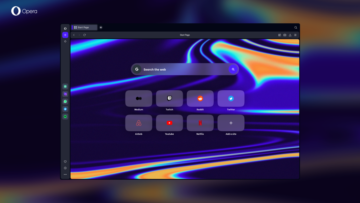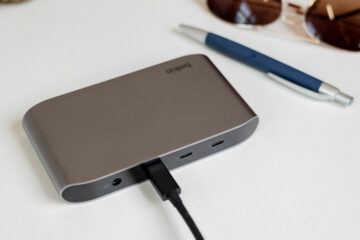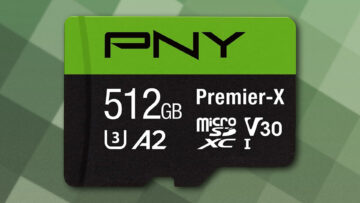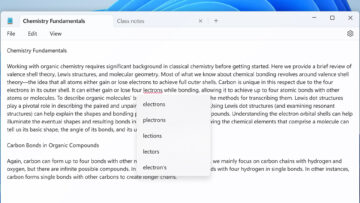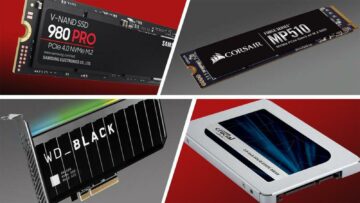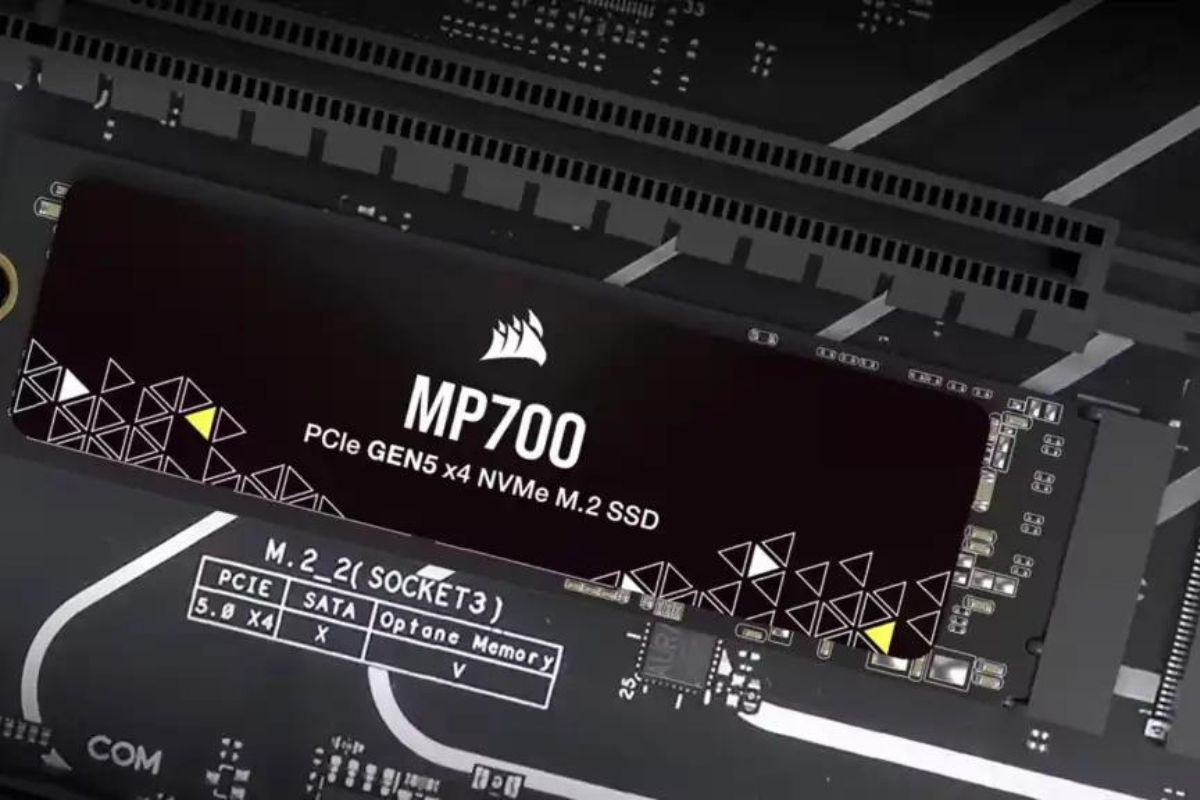
If you’ve got Corsair’s new MP700 SSD—or any other drive wielding cutting-edge PCIe 5.0 technology—you should really consider picking up an M.2 heatsink or cooler. The MP700 is one of the few PCIe 5.0 SSDs that ships without a cooling solution. Reviewers have discovered that if the drive is pushed to its limit, it can freak out really, really hard.
According to testing data from both Phoronix and TechPowerUp, if you don’t take measures to properly cool down the MP700, it can start generating file system errors or completely shut down your PC. Oof. Thankfully, Phison, the designers of the PS5026-E26 SSD controller used by the MP700 and many other PCIe 5.0 drives, is aware of the issue and is working on a fix. But there’s bad news too: This problem isn’t limited to Corsair’s SSD alone. It’s a potential concern for any drive using Phison’s SSD controller.
Phison, in speaking directly to Tom’s Hardware, say it’s already made the appropriate adjustments to the thermal throttle curve internally. That said, the brand new firmware first needs to go through the company’s austere validation process before it can be released to the general public. Phison said it was able to fix the problem “within hours of the report” so the company appears to be moving quickly here. That said, there’s no word yet on when the fix will be available. Fingers crossed that’ll it be sooner rather than later.
It’s generally understood that PCIe 5.0 SSDs run blisteringly hot when there’s no cooling involved. The higher the performance, the more power it consumes. The MP700 has a power consumption level of up to 10W, but—unlike the vast majority of early PCIe 5.0 drives—no included cooling solution. The omission of a heatsink helps keep the price low, sure, but you’re out of luck if you’ve got poor airflow.
The Gigabyte Aorus Gen5 1000, for example, includes a massive heatsink. In our review, it “never once threatened to throttle during multiple benchmark runs.” Although heatsinks jack up the overall price, it’s there for a reason, as it prevents the drive from overheating.
- SEO Powered Content & PR Distribution. Get Amplified Today.
- PlatoAiStream. Web3 Data Intelligence. Knowledge Amplified. Access Here.
- Minting the Future w Adryenn Ashley. Access Here.
- Buy and Sell Shares in PRE-IPO Companies with PREIPO®. Access Here.
- Source: https://www.pcworld.com/article/1842652/warning-pcie-5-0-ssds-can-freak-out-if-you-dont-use-a-cooler.html
- :has
- :is
- $UP
- a
- Able
- adjustments
- alone
- already
- Although
- an
- and
- any
- appropriate
- AS
- available
- aware
- Bad
- BE
- before
- Benchmark
- both
- brand
- Brand New
- but
- by
- CAN
- company
- Company’s
- completely
- Concern
- Consider
- consumption
- controller
- Cool
- Crossed
- curve
- cutting-edge
- data
- designers
- directly
- discovered
- Dont
- down
- drive
- during
- Early
- Errors
- example
- few
- File
- First
- Fix
- For
- from
- General
- general public
- generally
- generating
- Go
- Hard
- Have
- helps
- here
- higher
- HOT
- HOURS
- HTML
- HTTPS
- if
- in
- included
- includes
- internally
- involved
- issue
- IT
- ITS
- jack
- jpg
- Keep
- later
- Level
- LIMIT
- Limited
- Low
- luck
- made
- Majority
- many
- massive
- measures
- more
- moving
- multiple
- needs
- New
- news
- no
- of
- on
- once
- ONE
- or
- Other
- our
- out
- overall
- PC
- performance
- plato
- Plato Data Intelligence
- PlatoData
- poor
- potential
- power
- prevents
- price
- Problem
- process
- properly
- public
- pushed
- quickly
- rather
- really
- reason
- released
- Run
- runs
- Said
- say
- ships
- should
- Shut down
- So
- solution
- speaking
- start
- sure
- system
- Take
- Testing
- than
- that
- The
- There.
- thermal
- this
- Through
- to
- too
- understood
- use
- used
- using
- validation
- Vast
- warning
- was
- when
- will
- without
- Word
- working
- yet
- you
- Your
- zephyrnet


